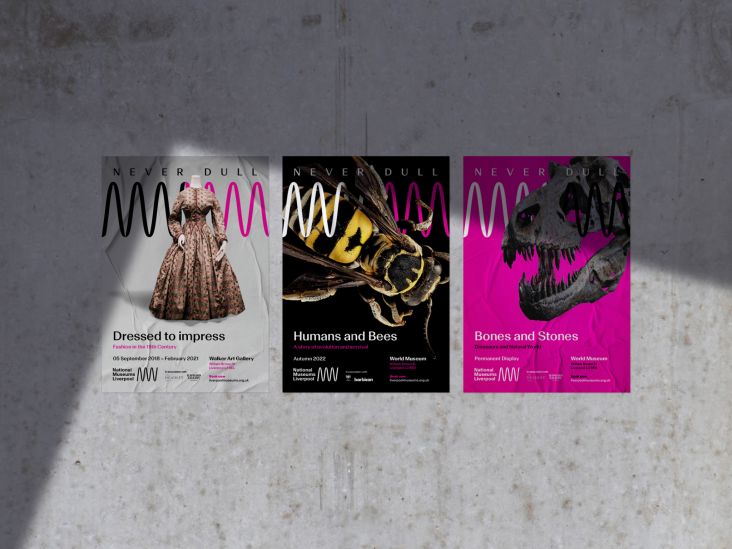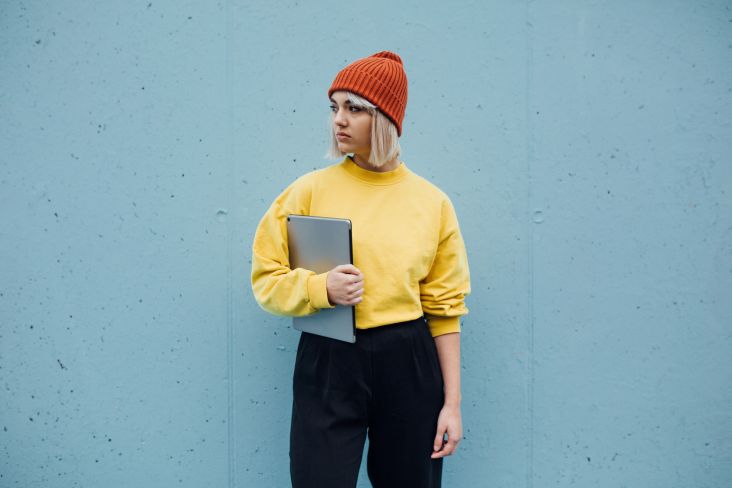How to get back your creative spark after suffering months of 'lockdown brain fog'
We all thought we'd achieve so much during the lockdowns. Without distractions like pubs, cinema and general socialising, we'd be free to start new side projects, brush up on our software skills, maybe even learn a language.

Image licensed via Adobe Stock
But for many of us, it's been the opposite. If anything, we've become more sluggish than ever: struggling to finish simple tasks and losing all enthusiasm for creative work.
And there's a good reason for that. According to some scientists, the trauma, uncertainty, and isolation of the last year have affected our minds and memory physically, causing a brain fog we can't lift.
As Carmine Pariante, professor of biological psychiatry at King's College London, says in this Guardian interview: "It is the cognitive equivalent of feeling emotionally distressed – it's almost the way the brain expresses sadness."
There may, though, be a silver lining. Developmental neuropsychologist Molly Colvin believes that 'brain fog' is pretty normal and may actually be protective. As she explains in this article, "It keeps us from taking on too much or from trying to move too fast in uncertain times. It allows for cognitive resources to be held in reserve so that capacity can be quickly deployed to learn new and adaptive skills".
So now that things are getting back to normal, how do we move out of our brain fog and reboot back to our normal, productive and motivated selves? We asked the creative community for advice, and here are some of the tips they had to share.
1. Refresh your routine
If your laptop or smartphone wasn't working properly, you'd try switching it to factory settings. You can't actually do that with an organic brain, but you can get a similar result by breaking from the norm and doing things differently from usual.
As artist and motion designer Gabriele Moc notes: "I think lockdown brain fog partly happens because getting stuck in the same routine leads to a cognitive and creative rut. So it's good to get up and start your day differently, no matter how little the changes are. It will make you rewire your brain and feel more refreshed."
2. Get outside
What's the best way to reinvigorate your routine? If possible, it's great to move it outside. As photographer Bimal Tailor advises: "Go to nature. Do something completely new. Swim. Cold shower. Deep breathing, a la Wim Hof. Hide the phone and tech away for a day."
Media trainer Scott Hamilton agrees. "Pre-lockdown, I drove all over the country," he recalls. "Now I get up every day and sit in front of a Zoom screen, coaching in three-hour bursts. 'Zoom Fatigue' set in very quickly, but what saved me was getting outside within an hour of getting up, ideally with a 20-minute walk.
"It wakes up my brain. But it also locks in the idea, for the rest of the day, that there's a world outside, with greenery and birds and people and real life."
3. Do creative things for you, not money
The problem with working as a creative, especially when you're working from home, is that it's easy for work-life and everyday life to bleed together. So it can be useful to do things that are specifically not for money, but just for fun.
"Do something creative that has nothing to do with what you do for work," suggests illustrator, designer and photographer Tim Easley. "That way, you can be creative without the worry of deadlines or money.
"If you're an illustrator, learn to play an instrument. If you're a photographer, start doodling. If you're a designer, buy some modelling clay. It's so good to be doing something separate where your main motivation isn't to pay bills."
4. Build breaks into your routine
Taking breaks - whether for walks in the country or to pursue a new hobby - sounds like sensible advice. But in practice, we often just don't get around to it. Tim suggests that scheduling it formally can help make it actually happen.
"I've had to assign days as 'days off' and have 'movie nights' by myself, just to get away from working," he admits. "That's especially since work and hobbies are pretty much the same thing for me, and I'd guess a lot of other people."
Print and web designer Berenice Smith agrees and recommends "stepping away completely for at least a day or more. Over lockdown, I took so few breaks and really needed to. Doing so has given me a new perspective. It may feel counterproductive, but it can help."
5. Do non-creative things
Sometimes pursuing a different kind of creative work than your normal profession can help lift your brain fog. But at other times, you may need to go further and take up an entirely non-creative hobby instead.
That's exactly what designer and art director Richard de Pesando has done, following dozens of YouTube videos about quantum physics. "It started off as Double Dutch," he recalls. "But it forced me to visualise the impossible and think about things too big and too small to quantify or picture."
Painter Heather Buchanan tells a similar story. "Since I haven't been able to rely on running lately, I've been learning the ancient Chinese exercise and healing technique of qigong," she says. "It's been such a lovely, peaceful, centring balance of meditation and movement."
It's also worth considering mixing with people outside your profession. Illustrator and animator Connie Noble says: "For ages, I tried to fight brain fog, but the only solution that works for me is taking real time off and seeing friends who don't work in the same sector. No job talk; just do stuff that is completely unrelated! The work will still be there when you get back."
6. Listen to music
Sometimes you can disperse brain fog just by putting the right track on in Spotify. "I've found ambient music useful for putting me in a more productive frame of mind," says freelance copywriter Sean McManus. "I can recommend Waiting for Cousteau, the 45-minute track by Jean-Michel Jarre, and lots of Brian Eno, including Music for Airports, Thursday Afternoon, and Discreet Music."
7. Rest
Finally, if nothing else is working, then just…stop.
"I've realised one of the best things one can do for productivity is rest," says founder Kei Maye. "If it reaches a point where I'm struggling to get tasks done, I down all tools and do something relaxing. Trying to force things in a tired stupor leads to headaches and lower quality results."
Too stressed out and finding it tough to relax? Then try a breathing exercise. Breathe into a slow count of 5. Hold your breath for 5. Exhale for a slow count of 10. Pause for another count of 5. And then repeat the whole process three times. This should work wonders in helping you get out of your head and more physically relaxed.
If that doesn't work, then a good laugh, or a good cry, can often help break through your stress. For the former, phone a friend you know makes you giggle. For the latter, a good weepy movie can work wonders –preferably one with a happy ending, of course. (You'll know the one that sets you off every time.)
Most importantly, says founder and MD Niki Hutchinson, take some time off – yes, book an actual holiday. "Pre-lockdown, those 25 days seemed to be booked up in no time; now they are stacking up as unused," she notes. "Switching off for a week is vital to getting rid of the brain fog and feeling refreshed mentally and creatively."

























